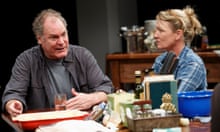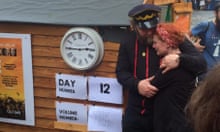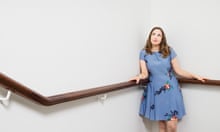Lucy Prebble, playwright
I feel nothing but rage. A horrible feeling – and one that helps me understand how these things start, when something important to you ends. I blame you, Cameron, a middle-manager of a prime minister whose ham-fisted leadership was based on one implicit stipulation not to fuck everything up.
I blame you, Farage, for channelling whatever dyspeptic psychological issue you suffer from into the macguffin of immigration. Oh, I blame you, Johnson – whose salivating opportunism seems to have surprised even you – for lending your baffling legitimacy to Ukip’s carnival. I blame you, Corbyn, for quietly hiding your dimness under principle like a cat burying its own shit.
And I blame you, Leave voters, for “going with a gut feeling” of empty rhetoric and downright lies because of a sad sense of lack of agency that we’ve all felt. I blame those voters who see facts as devalued because of how easy they are to access. I blame you.
I hope my kindness grows back. Until then, I’ll call this “historically democratic event” what it was: a jostle for prefect fagged by racists.
Anish Kapoor, sculptor
I am heartbroken. I hang my head. I feel shame, shame, shame at the xenophobia of this country. There are so many levels of division in Britain. And it’s all so unnecessary. I think the three men involved – Michael Gove, Boris Johnson and Nigel Farage – are despicable. And I feel shame, too, at the horrific lack of wisdom, at the criminal abandonment of duty, by David Cameron. He’s meant to lead, he’s meant to show us the way out, and he’s taken us to an abyss. We don’t expect our leaders to acquiesce to the loudest pressure group. He showed not one iota of courage.
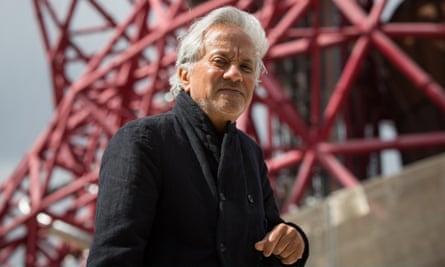
What a failure of leadership. What an abandonment and waste of our youth. More than 60% of young people voted to remain. So it’s us, the old farts, who are leading our youth OUT of this great cosmopolitan project. We’ve been building this thing since the second world war, and it has delivered peace and prosperity. I know the EU isn’t perfect but it holds to something we believe in. We know problems can only be solved together. So to do this is a dreadful act.
How will this affect my art? Some anger does get in there. But what I feel today is mostly shame. Art reflects our national consciousness, but now we’ve just dug a big hole and buried it for ever.
I was in Paris when I heard the news and I saw Marine Le Pen and the European right jump for joy. I’ve seen people crying. My friends have been crying. My daughter and her friends have been crying. Great Britain is a great country, a place of tolerance and open-mindedness. But today it looks narrow-minded, small-hearted and mean-spirited.
Andrew O’Hagan, author
It is the revenge of the Brownshirts, a dictatorship of the illiterate and the opportunistic. I’m appalled.
Stephen Hough, pianist
Musicians keep playing when the lights go out, when people are suffering, confused or angry. In every generation, politicians let us down but music can lift us above the fighting and the mistakes. It does not offer answers to specific political questions. Instead it looks beyond them. Classical music thinks in centuries, not four-year terms.
One of the things that touches me most when I play for an audience is that, although we may be unable to communicate in words or have diametrically opposed views on hot-button issues, while the music sounds we can be at peace, we can be friends. The vibrations that fill an auditorium have no passports and they unite ears when hearts may be divided.
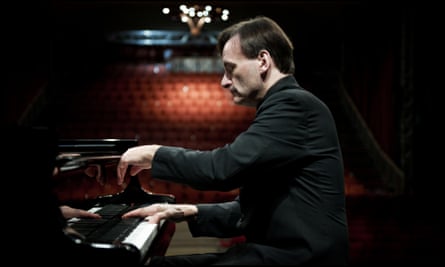
Whether in or out of Europe, we will always need to be building – and repairing – bridges. Sometimes the arts can be the only way a connection can be made across turbulent waters. On my piano at the moment sit scores of Beethoven, Debussy, Franck, Schubert, Liszt - a European community that can never be divided.
Barrie Rutter, artistic director, Northern Broadsides
What’s so awful about the vote is that it’s a leap into the dark – and for a while, it will only get darker. This out vote will increase the attacks on all we hold dear. The NHS is being geared up to fail, the BBC is being geared up to fail. It’s about the money, it’s about chasing the money. You break these things up so the money moguls can get it.
Art is going that way too. It’s “arts for all” but only via the screen, like NTLive, not the stage. That’s a sort of elitism and it’s because of a lack of public funding. The arts retrench into flagship companies, who can afford the stars the world says it wants, and the profits go back into those companies.
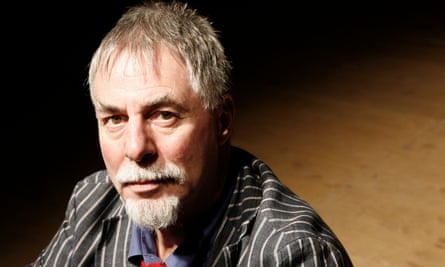
Brexit has made this worse because of the personalities leading it: Michael Gove and Boris Johnson et al, led by Rupert Murdoch. That’s more of a problem than questions about European funding. Look what Johnson has done to London: left it full of expensive flats, the money moguls have won. These people know the cost of everything and the value of fuck all.
For artists, it will only increase dynamism and creativity – hungry artists are always creative. Some will attack the status quo, although that status quo has changed overnight to a tougher, more rightwing thing. Governments have always had a problem with the arts because we ask them for money, then we lampoon them. That’s made us a healthier country for hundreds of years.
Pound for pound, artists in this country are the best in the world. They will bounce back. But will the funding be there for us to keep bouncing back? And will audiences? Audiences are already declining. The Leave campaign accused Remain of using the fear factor. Some of this was justified, but their lies were bigger and the populace bought them. We don’t have to go back very far to see the fear of the foreigner and the fear of the outsider being used in that way.
It’s very depressing. But we can’t retreat to tear-filled handkerchiefs. We have to think: “What have we done to get here?” Then we start the fightback.
David Lan, artistic director, Young Vic
The vote against Europe was also a vote against London – against much that we love about it, as well as much that we despise. We knew it would be so, before it broke as a wave of anger and distress.
We need to start by feeling the depth of people’s fears about the quality of their lives and their future lives. But we also need to remember that the prospectus offered by the coalition government of 2010 was a lie. The weakness of the UK economy was a global problem, not caused by a profligate Labour administration. Austerity was not the cure. Lies have consequences. We will feel them in every part of our experience for generations.
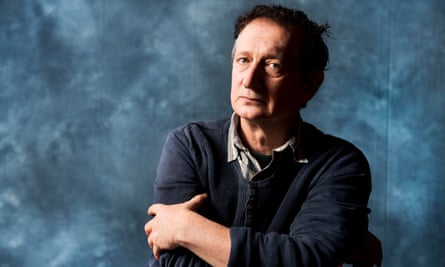
Will the arts now be subject to new rules that inhibit and limit? Will it be harder to achieve the cross-border exchanges that enlighten and enrich? We’ll find out. But whatever happens, we shouldn’t accept another lie: that the cultural and artistic life of this country ever has been or ever could be separate from Europe. We’re not twins. We’re not even conjoined twins. We’re one body expressing one momentous idea about the potential of every human being to achieve individuality as part of a collective.
Apart from which, whenever you think of John of Gaunt’s lines about England from Richard II …
This happy breed of men, this little world,
This precious stone set in the silver sea …
… remember that Gaunt is actually Ghent, that John was born in what is now Belgium and that these lines should be delivered in a strong French accent.
Rufus Norris, director, National Theatre
Art can have no boundaries – in spirit as well as in practice. The UK creative industries are indisputably world-leading, and the NT is proud to be a part of this global creative ecology. Our continued success depends on the free exchange of ideas, talent and creativity, and we remain committed to increasing our collaboration with friends and colleagues across the UK, Europe and around the world.
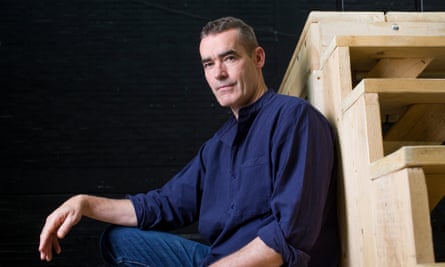
After this referendum and the divisions it has highlighted, it is essential that the arts work even harder to give voice to all parts within our society. We must be fearless in using the arts as a crucible in which we come to understand who we are as individuals, as communities and as a nation.
Royal Opera House
It is too early to say what the impact will be on ROH and its charitable aims. However, the Royal Opera, the Royal Ballet and the Orchestra of the Royal Opera House are internationally renowned, employing hundreds of artists from across the world, including many from within the EU. Opera and Ballet are both art forms with a truly global audience, rooted in European culture, and a vital part of the UK’s artistic life. We will work our hardest to ensure that our ability to enrich people’s lives through these wonderful art forms is sustained.
Stephen Deuchar, director, Art Fund
As the national fundraising charity for art, the Art Fund is deeply concerned at the impact leaving the EU will have on culture in the UK, and particularly on its museums and galleries. At one level there is obviously now great financial uncertainty – the effect on European funding for the arts, for example – but quite as important is the potential effect on the spirit that drives a myriad of international partnerships in the arts. These are driven at heart by the principle of Britain as a collaborative component of, and participant in, a vibrant European culture. We must work hard to keep this spirit alive, regardless of politics.
Mark Elder, music director, Hallé Manchester
This is a very difficult day for music, which relies so much on the talents and energies of soloists and players from Europe. My orchestra contains 14 nationalities, most of them from the EU, and our artistic life in Manchester is immeasurably enriched by the free exchange of labour. Let’s hope that wise counsel prevails when the details are discussed.
Ivo van Hove, artistic director, Toneelgroep Amsterdam
Europe has always been a source of energy for my theatre company. I don’t think, being Belgian, I should stick to my own country. My identity comes from much more than that. English theatre has opened itself up to Europe and to the world: I’m an example of that, I’ve had the opportunity to work at the Young Vic and the National.
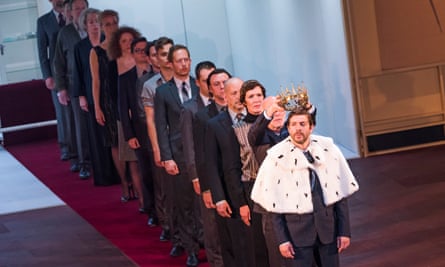
What is happening now is overwhelming. But there is hope: young people voted significantly against Brexit and that’s a sign for the future. No one knows exactly how this will work out. But apart from the economic consequences, it is a misunderstanding that you get your identity only from being British and excluding yourself from the rest of the world.
A majority of the British people seem to be searching for the past again, to live in splendid isolation. The arts are the opposite of that: they are all about the future, development, creativity, collaboration, openness and inclusiveness. It will be no problem at all for British theatre, dance and music companies to come to Europe in the future. We will have our arms wide open.
Mark Ball, artistic director, London international festival of theatre
Many of us in the arts are feeling bewildered, confused and angry. The dial has turned in a way we find hard to comprehend. And for LIFT, a theatre festival with internationalism seared into its DNA, it’s especially bruising. Sharing global stories is what we do, many generated by artists and organisations from across Europe.
Over the past seven years, with the support of the EU’s Creative Europe fund, we’ve helped dozens of artists to make and bring extraordinary European theatre to the UK. This year’s festival, playing across London, has already presented nine new international productions supported by the Creative fund – shows that come from every corner and culture of Europe that explore our shared humanity, our shared future, the things that bind us together.
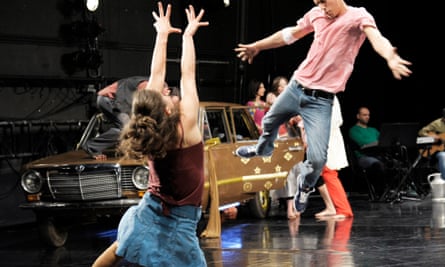
As our patron Juliet Stevenson says, that work is “a blast of oxygen, invigorating our artists and audiences”. But our work in Europe is about much more than receiving funding. It’s about supporting the free movement of artists across borders, it’s about dialogue, friendship and collaboration with our European peers on subjects as diverse as the role of the arts in raising awareness of climate change, to how we can share expertise to develop new audiences. So today we’re feeling very fearful about the future of our work in Europe, and I’ve received messages from many European organisations who are deeply worried, too.
But I have hope. Because I know that theatre and the arts provide a bridge of understanding and that artists can help us comprehend a different world. They encourage empathy. They give us common ground. They can help to heal deep wounds. And now – when for many the world may seem like a darker place – the arts can let the light back in, little by little.


